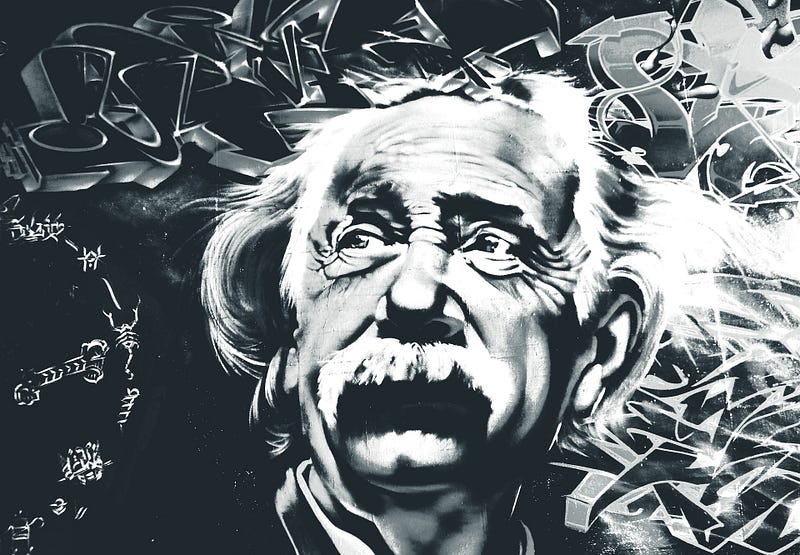Strong Opinions: Navigating the Complexities of Human Legacy
Written on
Chapter 1: The Dilemma of Admiring Genius
Albert Einstein is often hailed as a genius, with his contributions to science rivaling those of great figures like Isaac Newton and the anonymous inventor of fire. However, while listening to the radio recently, I was taken aback by a controversial assertion: it was time to reconsider Einstein's veneration. The claim didn't come from a physicist challenging his theories but rather from a sports journalist.
This paragraph will result in an indented block of text, typically used for quoting other text.
Section 1.1: The Shortcomings of Public Figures
I have a deep appreciation for sports, music, and literature, but I wouldn’t seek guidance on astrophysics from musicians or authors. Today, humility seems increasingly rare, as many feel equipped to challenge established figures after consuming minimal information online. The journalist in question backed up his stance with claims about Einstein's personal life, portraying him as a neglectful father and a power-hungry individual responsible for nuclear devastation. While I acknowledge my lack of knowledge about Einstein's character, I remain indifferent to his personal shortcomings. He is no longer alive, and I fail to see how his legacy inspires positive social behavior. Instead, his theories continue to be revered by physicists who are still striving to validate some of his more speculative ideas.
Subsection 1.1.1: The Challenge of Separating Work from the Person

Section 1.2: The Complexity of Legacy
In today's world, distinguishing between an individual's character and their professional achievements has become increasingly challenging. This reality is disheartening; I believe that a person's actions should not overshadow their contributions. Regardless of one's accomplishments, everyone should face scrutiny for their behavior. For instance, if I were to develop a groundbreaking cancer vaccine while committing heinous acts, I should be held accountable, despite the potential benefits of my invention. Unfortunately, society often chooses to erase figures with controversial pasts, rejecting everything associated with them rather than confronting uncomfortable truths.
Chapter 2: The Perils of Strong Opinions
Strong opinions can be treacherous, reserved for those who can analyze reality with clarity. By "strong people," I refer to individuals unafraid to reassess their beliefs and maintain a balance between conflicting viewpoints. Personally, I question my own strength in this regard and often refrain from forming rigid opinions.
Today's level of pessimistic optimism: 55%.
Written while enjoying: ‘Trans-Millenia Music’ by Pauline Anna Strom.
Thank you for taking the time to read! Your support means a lot as I embark on my journey on Medium. Clapping and following are greatly appreciated.
Who am I, you inquire?
I am a musician who writes and a writer who creates music. You can explore my world here.
Chapter 3: Understanding the Dynamics of Social Connections
The second video dives deep into how strong opinions shape our social connections and the psychology behind them. It examines the interplay between personal beliefs and societal dynamics, offering insights into how we form and maintain relationships based on our convictions.